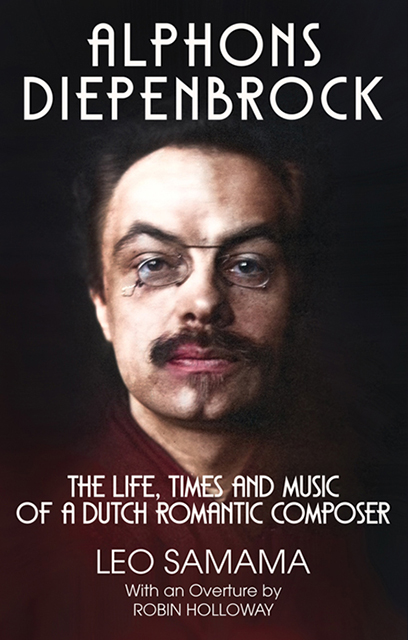Summary
My first experience of the great Continental concert halls that London so woefully lacks was a visit to the Amsterdam Concertgebouw for an all-American orchestral programme. The whole structure vibrated to the massive onslaught of Ruggles’ Sun Treader, and the glistering knife-across-glass textures of David del Tredici's Adventures Underground seemed calculated to scrape the gold-embossed names of old masters off the dowdy décor. Amongst those names Zweers, Dopper and Diepenbrock stood out for incongruity, as well as intrinsic oddness. I ignorantly mocked them as small-culture pieties of a particular epoch – the British equivalent might perhaps be Barnby, Parry and Bantock stencilled upon a frieze in the Royal Albert Hall. I could not have foreseen the intense pleasure that a few years later would be afforded by the music of one of those funny Dutch names. Alphons Diepenbrock comes into focus as a distinct voice of singular beauty amongst the ebbs and splurges left in the wake of Wagner.
Distinction is hardest to recognise when the generalities of a style are already well received. In Renaissance polyphony, in Baroque concertos and Classical symphonies, individuality is indistinguishable from convention, even routine, except by excellence, that clear but undefinable sine qua non. By now the same goes for the vernacular of late Romanticism, where Diepenbrock belongs. When an idiom is so familiar, the critic always tends to describe resemblances rather than try to measure differences which, though crucial, are often minute. Subtle inflexions within well-known norms reveal themselves only with repeated hearing.
Born in 1862, and thus coeval with his favourite Mahler and Debussy, Diepenbrock made his living by teaching Latin and Greek; musically, he was self-taught. His passion for composition rapidly won its place, primus inter pares, in a wide range of cultural, religious and political involvements. Though little published in his lifetime, he was performed, with recognition, and his music holds a distinguished place in his native repertoire, though making little headway beyond. A body of religious choral music is central to his output. The Missa in die festo of 1891 impresses in its attempted fusion of Old Netherlands polyphony with late-Romantic harmony, a kind of cross between Bruckner's motets and the angel-dictated Mass in Pfitzner's Palestrina, but at once more cerebral and more juicy. His purely instrumental work is attractive but not exactly arresting.
- Type
- Chapter
- Information
- Alphons DiepenbrockThe Life, Times and Music of a Dutch Romantic Composer, pp. 11 - 14Publisher: Boydell & BrewerPrint publication year: 2023



